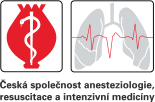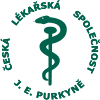Anest. intenziv. Med. 2006;17(5):251-260
Postoj lékařů ARO/JIP k otázkám omezení rozsahu poskytované léčby u nemocných v intenzivní péči - národní studieIntenzivní medicína - Původní práce
- 1 Klinika anesteziologie, resuscitace a intenzivní medicíny UK v Praze, LF v Hradci Králové a Fakultní nemocnice Hradec Králové
- 2 Anesteziologicko-resuscitační klinika 2. LF UK a Fakultní nemocnice v Motole, Praha
- 3 I. interní klinika UK v Praze, LF a Fakultní nemocnice, Plzeň
- 4 Anesteziologicko-resuscitační klinika LF Masarykovy univerzity a Fakultní nemocnice u sv. Anny v Brně
- 5 Anesteziologicko-resuscitační oddělení, Masarykova nemocnice, Ústí nad Labem
Cíl studie:
Cílem studie bylo získání údajů o názorech lékařů pracujících na ARO/JIP v České republice k problematice omezování léčby u nemocných v intenzivní péči.
Typ studie:
Prospektivní multicentrická studie.
Název a sídlo pracoviště:
Resuscitační oddělení a JIP.
Materiál a metoda:
Členům SIM ČSARIM byl zaslán dotazník s otázkami zjišťujícími názory lékařů na problematiku omezení rozsahu léčby.
Výsledky:
Z 870 členů SIM odpovědělo 213 (26 %) lékařů. 90 % lékařů považuje u nemocných v terminálním stadiu jejich onemocnění za přijatelné omezení léčby, 51,4 % ukončení ventilační podpory a 19,1 % eutanazii. U pacientů nekompetentních považuje 205 (96 %) respondentů lékaře za hlavního činitele v rozhodovacích procesech, ošetřující sestra a rodina se účastní v 28,9 %, respektive ve 43 %. 36,9 % lékařů respektuje přání rodiny v případě neshody názorů.V případě omezení léčby souhlasí většina lékařů s ponecháním analgosedace a infuzní léčby, zápis do dokumentace je prováděn v 73 %. Nedostatek soukromí a neosobní prostředí jsou hlavní faktory bránícími zajištění důstojného umírání nemocných na ARO/JIP.
Závěr:
Studie přináší doposud nepublikované údaje o postojích lékařů ARO/JIP v České republice k otázkám omezování rozsahu poskytované léčby. Koncept nerozšiřování či vysazení léčby je přijatelný pro většinu respondentů, vysazení ventilační podpory odmítá polovina dotazovaných. Analgosedace a infuzní léčba jsou nejčastější postupy ponechané v průběhu odnímání léčby. Nedostatek soukromí a neosobnost prostředí jsou hlavními překážkami zajištění "důstojného umírání" v prostředí ARO/JIP.
Klíčová slova: omezení léčby; intenzivní péče
Attitudes of intensivists to limiting therapy and end of life decision in the Czech Republic - a national study
Objective:
The purpose of the study was to obtain information about the attitudes of doctors working on ICUs in the Czech Republic to limiting therapy and end of life decisions (EOLD).
Design:
Prospective, multi-centre, observational study.
Setting:
ICUs in tertiary care hospitals.
Materials and Methods:
Questionnaires were posted to members of the Czech Society of Anaesthesiology and Intensive Care on their attitude to limiting therapy in patients admitted to ICUs.
Results:
870 posted questionnaires yielded a response rate of 26%. 90% of the physicians considered limiting therapy in terminally ill patients as acceptable, 51.4% agreed with terminal respiratory weaning and 19.1% with euthanasia. EOLD may be undertaken by the competent patients themselves. 96% of responders considered the physician as the key person in EOLD for the incompetent patient. 28.9% and 43% of physicians respectively would include the nurse and the family in the decision-making process and 36.9% of physicians would respect the family's wishes in cases of differing opinion. During withholding therapy most physicians would agree with the maintenance of analgesia, sedation and infusion therapy. A written EOLD order was recorded in the patient chart in 73%. Lack of privacy and the absence of family members were considered a key obstacle to assuring dignified death.
Conclusion:
The study presents yet unpublished data regarding the attitude of the Czech Republic intensivists to the limitation of therapy and EOLD. Limitation of therapy was acceptable for the majority of responders whereas terminal respiratory weaning was refused by half of them. The absence of privacy and impersonal environment are the main obstacles to dignified dying in the ICU environment.
Keywords: limitation of therapy; intensive care
Zveřejněno: 1. říjen 2006 Zobrazit citaci
| ACS | AIP | APA | ASA | Harvard | Chicago | Chicago Notes | IEEE | ISO690 | MLA | NLM | Turabian | Vancouver |
Reference
- Černý, V., Pařízková, R., Jahodářová, R., Herold, I., Nalos, D. Ukončování ventilační podpory u nemocných v intenzivní péči. Anest. neodklad. Péče, 2001, 12, 2, s. 64-68.
- Harrison, D. A., Brady, A. R., Rowan, K. Case mix, outcome and lenght of sty for admission to adult, general critical care units in England, Wales and Northern Ireland: the Intensive Care NATIONAL Audit And Research Centre Case Mix Programme Database. Critical Care, 2004, 8, p. R 99-111.
 Přejít k původnímu zdroji...
Přejít k původnímu zdroji... - Sprung, C. L., Cohen, S. L. et al End-of-life practices in European intensive care units: the Ethicus Study. JAMA, 2003, 13, 290 (6), p. 790-797.
 Přejít k původnímu zdroji...
Přejít k původnímu zdroji...  Přejít na PubMed...
Přejít na PubMed... - Poulton, B., Ridley, S., Mackenzie-Ross, R., Jizvi, S. Variation in end-of-life decision making between critical care consultants. Anaesthesia, 2005, 60, p. 1101-1105.
 Přejít k původnímu zdroji...
Přejít k původnímu zdroji...  Přejít na PubMed...
Přejít na PubMed... - Prendergast, T. J., Luce, J. M. Increasing incidence of withholding and withdrawal of life support from critically ill. AJRCCM, 1997, 155, p. 15-20.
 Přejít k původnímu zdroji...
Přejít k původnímu zdroji...  Přejít na PubMed...
Přejít na PubMed... - Cardovo, T., Fonseca, T., Pereira, S., Lencastre, L. Life-sustaining treatment decisions in Portuguese intensive care units: a national survey of intensive care physicians. Crit. Care, 2003, 7, 6, p. 165-175.
- Chong, A. M., Foc, S. Y. Attitudes toward euthanasia in Hong Kong-a comparison between physicians and the general public. Death Stud., 2005, Jan-Feb, 29, 1, p. 29-54.
 Přejít k původnímu zdroji...
Přejít k původnímu zdroji...  Přejít na PubMed...
Přejít na PubMed... - Soudry, F., Sprung, C. L., Levin, P. D., Grunfeld, G. B., Finay, S. Forgoing life-sustaining treatments: comparison of attitudes between Israeli and North American intensive care healthcare professionals. Isr. Med. Assoc. J., 2003, 5, 11, p. 770-774.
 Přejít na PubMed...
Přejít na PubMed... - Pařízková, R. Černý, V., Dostál, P., Cvachovec, K., Novák, I., Šrámek, V., Nalos, D. Omezení léčby u nemocných na pracovištích ARO/JIP - jednodenní národní studie. Anest. intenziv. Med., 2006, 17, 5, s. 261-265.
- Černý, V., Pařízková, R., Nalos, D., Jahodářová, R. Etické a právní aspekty "kategorizace nemocných" v intenzivní péči. Anest. neodklad. Péče, 2000, 11, Supplementum 1, s. 37-39.
- Yap, H. Y. Ethical attitudes of intensive care physicians in Hong Kong: questionnaire survey. Hong Kong Med. J., 2004, 10, 4, p. 244-250.
 Přejít na PubMed...
Přejít na PubMed... - Sjokvist, P., Nilstun, T., Svantesson, M., Berggren, L. Withdrawal of life suuport - who should decide? Differences in attitudes aminy the general public, nurses and physicians. Intensive Care Med., 1999, 25, p. 949-954.
 Přejít k původnímu zdroji...
Přejít k původnímu zdroji...  Přejít na PubMed...
Přejít na PubMed... - Ho, K. M., Liang, J. Withholding and withdrawal of therapy in New Zealand intensive care units (ICUs): a survey of clinical directors. Anaesth. Intensive Care, 2004, 32, 6, p. 781-786.
 Přejít k původnímu zdroji...
Přejít k původnímu zdroji...  Přejít na PubMed...
Přejít na PubMed... - Wenger, N. S., Carmel, S. Physicians' religiosity and end-of-life care attitudes and behaviors. Mt. Sinai J. Med., 2004, 71, 5, p. 335-343.
- Truog, R. D., Cist, A. F. M. et al: Recommendation for end-of-life care in the intensive care unit: The Etics Committee of the Society of Critical Care Medicine, 2001, 29, p. 2332-2348.
 Přejít k původnímu zdroji...
Přejít k původnímu zdroji...  Přejít na PubMed...
Přejít na PubMed...





